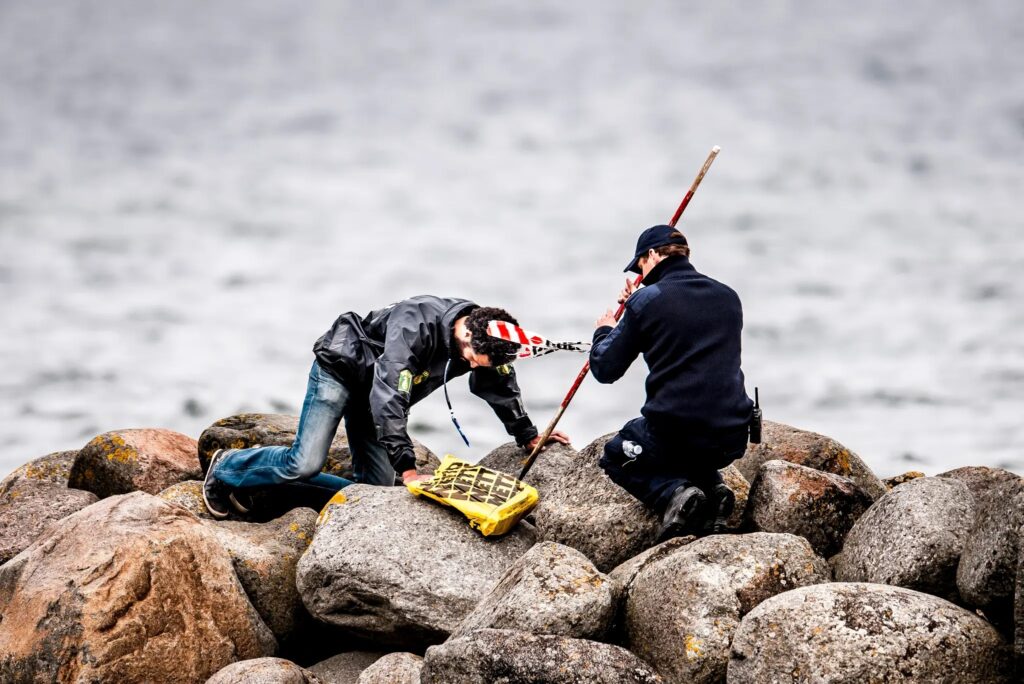By REFH – newshub finance
The story of Kim Wall’s murder is one of the most disturbing criminal cases in modern Scandinavian history. The killing of a young, respected journalist by a man celebrated as an inventor shocked Denmark and the world, exposing uncomfortable truths about charisma, control, misogyny and the façade of genius. This is the story of a life lost – and a darkness long overlooked.
The journalist: Kim Wall and her search for stories
Kim Isabel Fredrika Wall was born on 23 March 1987 in Trelleborg, a small Swedish town in Skåne. Ambitious, intelligent and empathetic, she carved out a name as a determined freelance journalist with an eye for global human stories often overlooked by mainstream media. Educated at the London School of Economics and later at Columbia University in New York, she wrote for The Guardian, The New York Times, Vice, and Time.
Wall’s reportage took her across the globe, from post-war Sri Lanka to the nuclear zone around Chernobyl, always driven by an ethical commitment to telling stories that mattered – especially those involving power, resistance, and the intersection of technology and humanity. Her writing combined elegance with precision, and she was known among peers as fearless but kind, a perfectionist with a dry sense of humour and boundless curiosity.
In the summer of 2017, she was living in Copenhagen with her partner, working on a story about the eccentric Danish inventor Peter Madsen – a man she had long been trying to interview. It was supposed to be a quick meeting, a short trip on his self-built submarine, the UC3 Nautilus. She texted her boyfriend just before boarding the vessel, writing: “I’m still alive by the way”. It would be her final message.


The inventor: Peter Madsen and the myth of the self-made genius
At first glance, Peter Madsen represented the archetypal modern dreamer. Born in 1971 in Copenhagen, he was a self-taught engineer and entrepreneur who had captivated Danish media with bold claims of private spaceflight and home-built submarines. He styled himself as a visionary, naming his rocket company Copenhagen Suborbitals and claiming he would send civilians into space.
But behind the myth of innovation was a man marked by erratic behaviour, failed collaborations, and increasingly sinister patterns. His colleagues at Copenhagen Suborbitals had distanced themselves from him years before, citing his difficult temperament and toxic ego. Still, he retained a certain cult following – a mixture of online fans, journalists, and backers seduced by his talk of space and science unshackled by institutions.
Madsen cultivated a public image of rugged brilliance, a figure straddling the line between pirate and professor. His submarine was both symbol and stage – and on the evening of 10 August 2017, it became the scene of an unimaginable horror.
The night of the crime: Disappearance and disbelief
When Kim Wall didn’t return home, her partner contacted authorities. Within hours, the submarine had been reported missing. A dramatic rescue operation located Madsen the next morning near Køge Bay, clinging to the side of the sinking vessel. He claimed to have dropped Wall off the night before near Refshaleøen, safe and sound.
But that story quickly unravelled. Danish police raised the sunken submarine and discovered blood traces and evidence of deliberate sabotage. Then, ten days later, a torso without arms, legs or head washed up near Amager. It was Kim Wall.
Over the coming weeks, divers would discover other body parts in bags weighted down with metal. Her remains bore signs of stab wounds, and autopsies suggested attempts at mutilation both before and after death. Madsen shifted his story several times: from claiming Wall died from a hatch accident, to carbon monoxide poisoning, to ultimately admitting dismemberment but not murder.
It was a pattern of manipulation and evasion that would continue through his trial.

The trial: Misogyny, sadism, and forensic truth
Peter Madsen’s trial in Copenhagen in spring 2018 was one of the most watched in Danish history. Prosecutors painted a portrait of a calculating killer with a history of violent fantasies, drawing on disturbing digital evidence: hard drives containing videos of women being tortured and decapitated, internet searches about execution methods, and chats expressing a desire to harm.
Witnesses testified about Madsen’s unstable temperament, his fascination with death, and his history of controlling behaviour. The court heard from forensic specialists about the precision of the dismemberment and the indications that Kim Wall had been restrained and murdered deliberately.
Madsen denied premeditated murder, maintaining she died accidentally. But the evidence was overwhelming. In April 2018, he was found guilty of premeditated murder, sexual assault, and desecration of a corpse. He was sentenced to life imprisonment, the harshest penalty under Danish law.
Aftermath and legacy: A nation mourns, a world remembers
Kim Wall’s murder sent shockwaves through the journalistic world and Scandinavian society. Denmark, often seen as a bastion of social trust and safety, was confronted with a grotesque act of violence that seemed to defy logic. But for many women, the story was not unfamiliar – the idea of trusting someone powerful, only to be trapped and violated, resonated with broader issues of misogyny and violence.
Wall’s parents, Ingrid and Joachim, responded with dignity and courage, creating The Kim Wall Memorial Fund to support young female journalists. “We want to turn something terrible into something positive,” they said. Their daughter’s legacy now lives on in the work of others carrying the torch of fearless journalism.
In 2020, the case was adapted into a television miniseries, The Investigation, by acclaimed Danish director Tobias Lindholm. Unusual for a crime drama, it excluded Madsen entirely from screen time – focusing instead on the painstaking work of detectives, divers and prosecutors who sought justice for Kim. It was a conscious decision to shift focus away from the killer’s pathology and onto the system that held him accountable.

The dark appeal of the killer: Why we must resist mythmaking
The fascination with Peter Madsen, both before and after the crime, raises uncomfortable questions. Why are charismatic men with grand ideas often excused or indulged, even when red flags are obvious? Why do stories about male genius so often ignore the abuse, control, or cruelty that can lie beneath the surface?
Madsen was enabled, in part, by a culture that rewards spectacle and ego over collaboration and ethics. Former colleagues had long voiced concern about his behaviour. Journalists had reported inconsistencies and arrogance. But the idea of the lone inventor defying the system remained seductive.
In the years since, many in Danish media have engaged in introspection, questioning how much attention had been paid to Madsen’s charm rather than his conduct. The Wall case is a chilling reminder that we must scrutinise power, not worship it – and that ‘eccentricity’ is no excuse for harm.

Remembering Kim
In remembering Kim Wall, we remember not just the horror of her death but the integrity of her life. She was not a passive victim; she was an agent of truth, someone who brought hidden stories to light, someone who lived with compassion and courage.
Her murder was a tragedy. But her legacy is one of resistance against silence, against misogyny, against the casual entitlement of men like Madsen. Her story, now shared in classrooms, awards, and articles worldwide, has become a rallying point for safer journalism, for feminist accountability, and for the sanctity of storytelling itself.
Kim Wall’s life mattered. Her work mattered. And as long as her words are read, and her mission continued, the darkness that took her will never have the final word.
REFH – newshub finance
In memory of Kim Wall, 1987–2017



Recent Comments